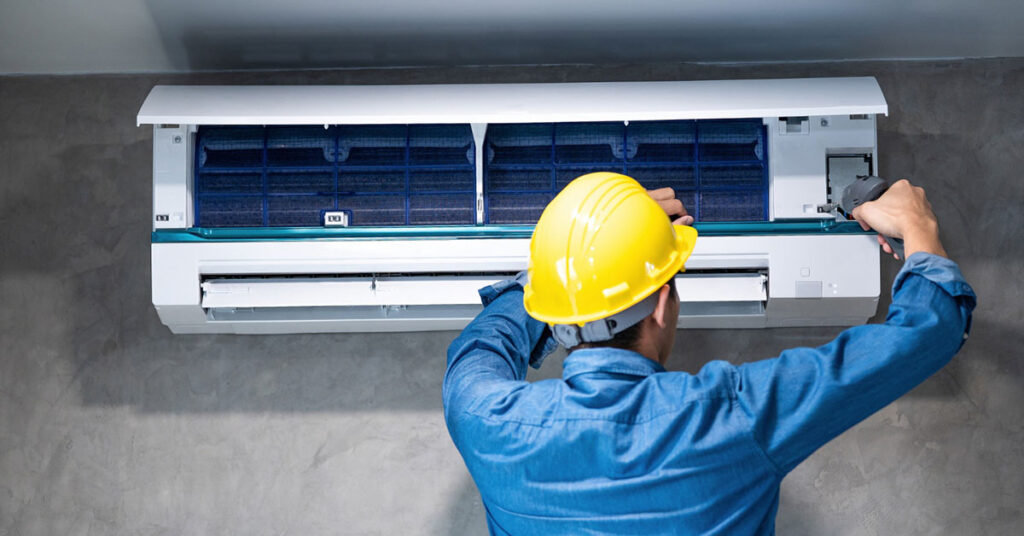The climate in Dallas, Texas, is both warm in the summer and cold in the winter. Homeowners often wonder whether air conditioning or heating costs more in extreme weather conditions. This blog post will explore the question, ‘Is air conditioning more expensive than heating? Learn what influences the costs of air conditioning and heating in Dallas and how to reduce them. Let’s get started.
Understanding Energy Costs In Dallas
Climate, HVAC system efficiency, insulation, and usage habits affect Dallas’s energy expenses. Residents rely heavily on air conditioning and heating systems during the hot summers and cold winters.
Managing energy bills requires efficient insulation and HVAC maintenance. Additionally, programmable thermostats can optimize energy usage based on daily schedules. Homeowners can better control their energy bills in Dallas by addressing these factors.
Air Conditioning Costs in Dallas
The summers in Dallas are notorious for their intense heat, with temperatures frequently exceeding 90°F. Therefore, air conditioning becomes a necessity for maintaining indoor comfort. However, the relentless heat may result in significant energy bills, especially during summer.
Several factors contribute to air conditioning costs in Dallas:
- Temperature Settings: Lowering the thermostat to combat the heat increases energy consumption. As a result, homeowners keep their thermostats at cooler temperatures to combat the scorching outdoor temperatures.
- HVAC System Efficiency: The efficiency of your air conditioning unit plays a crucial role in determining energy costs. Older or inefficient AC systems require more energy to cool your home, leading to higher electricity bills. Investing in a newer, more energy-efficient model can reduce long-term cooling costs.
- Insulation: Insulation is crucial in maintaining indoor comfort and reducing air conditioner workload. Insulated homes retain cool air more effectively, allowing the AC unit to operate more efficiently and reduce energy consumption.
- Maintenance: Regular maintenance ensures that your air conditioning system performs optimally and is energy efficient. The energy consumption and repair costs associated with neglected AC units are higher due to breakdowns and inefficiencies.
Homeowners can effectively manage their air conditioning costs in Dallas by addressing these factors, implementing energy-saving practices, and sealing air leaks. In addition, consulting with HVAC professionals can help optimize energy usage and reduce overall expenses during the summer.
Heating Costs in Dallas
Winters in Dallas are relatively mild compared to northern regions, but it still gets cold enough to need heating. Familiar heating sources include furnaces, heat pumps, and electric heaters.
Factors influencing heating costs in Dallas include:
- Temperature settings: Higher thermostat settings result in increased energy consumption.
- Type of heating system: Different heating systems have varying energy efficiencies and operating costs.
- Insulation: Adequate insulation helps prevent heat loss, reducing the need for continuous heating.
- Maintenance: Well-maintained heating systems run more efficiently, saving on energy costs.
Is Air Conditioning More Expensive Than Heating
You must consider various factors when comparing Dallas air conditioning costs with Dallas heating costs. The relative cooling and heating costs can fluctuate depending on seasonal variations and personal usage patterns.
In Dallas, air conditioning costs may dominate during the summer due to the relentless heat. High temperatures can increase energy consumption and electricity bills due to the need for continuous cooling. Over time, energy-efficient cooling solutions and advances in HVAC technology can help mitigate these expenses.
Conversely, heating costs can skyrocket during cold snaps when temperatures drop below freezing. Even though Dallas winters are mild, heaters are still essential for maintaining comfort indoors. It depends on thermostat settings, insulation levels, and the efficiency of your heating system.
The cost comparison between air conditioning and heating depends on various factors unique to each home. When assessing energy expenses, homeowners should consider climate, HVAC system energy efficiency, insulation levels, and usage habits.
Homeowners can reduce air conditioning and heating costs over time by implementing energy-saving practices, such as setting programmable thermostats and sealing air leaks. Additionally, HVAC professionals can provide valuable insights and recommendations for cost-effective solutions tailored to individual requirements.
Tips for Managing Energy Expenses
Here are some tips on managing your energy expenses to save money.
Set Programmable Thermostats
Programmable thermostats allow you to adjust temperatures based on your daily schedule. You can reduce heating and cooling costs by programming your thermostat to raise the temperature when you are away or sleeping and lower it when you are home and awake.
Seal Air Leaks
Air leaks around windows, doors, and ducts can significantly impact energy efficiency by letting conditioned air escape and outdoor air in. You can improve insulation and reduce the workload on your HVAC systems by caulking or sealing these leaks.
Schedule Regular Maintenance
Regular maintenance is crucial for ensuring your HVAC systems’ optimal performance and efficiency. A professional HVAC tech can inspect and tune up your HVAC system, identify potential problems, and adjust to improve energy efficiency.
Upgrade to Energy-Efficient HVAC Systems
In the long run, investing in energy-efficient heating and cooling equipment can significantly save energy costs. HVAC systems that are Energy Star-certified provide superior comfort while meeting strict energy efficiency guidelines.
Use Ceiling Fans
A ceiling fan can improve airflow and spread conditioned air more evenly throughout your house, reducing the workload on your HVAC system. In summer, ceiling fans create a cooling breeze, so you can raise the thermostat without sacrificing comfort. By reversing ceiling fans in winter, you can circulate warm air downward, which helps with heating.
Keeping your home comfortable indoors is as easy as implementing these energy-saving tips and practices. HVAC professionals can also provide customized recommendations and solutions tailored to your home’s needs.
Read More: High Velocity Air Conditioning System: A Comprehensive Guide
Conclusion
Keeping your home comfortable throughout the year means air conditioning and heating. It may vary depending on your climate, system efficiency, and usage habits, but implementing energy-saving practices can help you manage your energy costs. Homeowners can save money and enjoy comfort by understanding the factors influencing energy costs.

